
Posted on 03/17/2020 6:06:02 AM PDT by Homer_J_Simpson









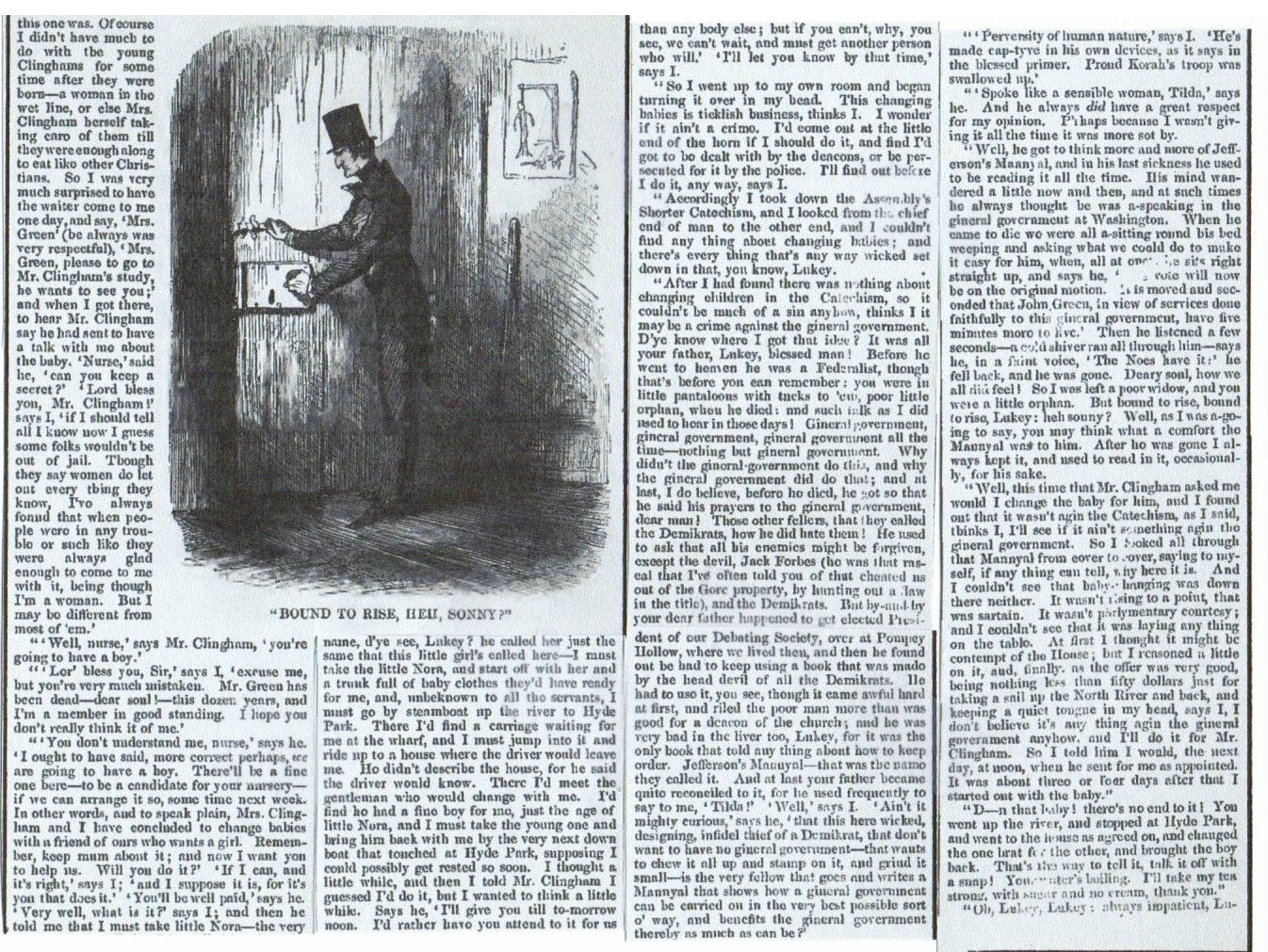

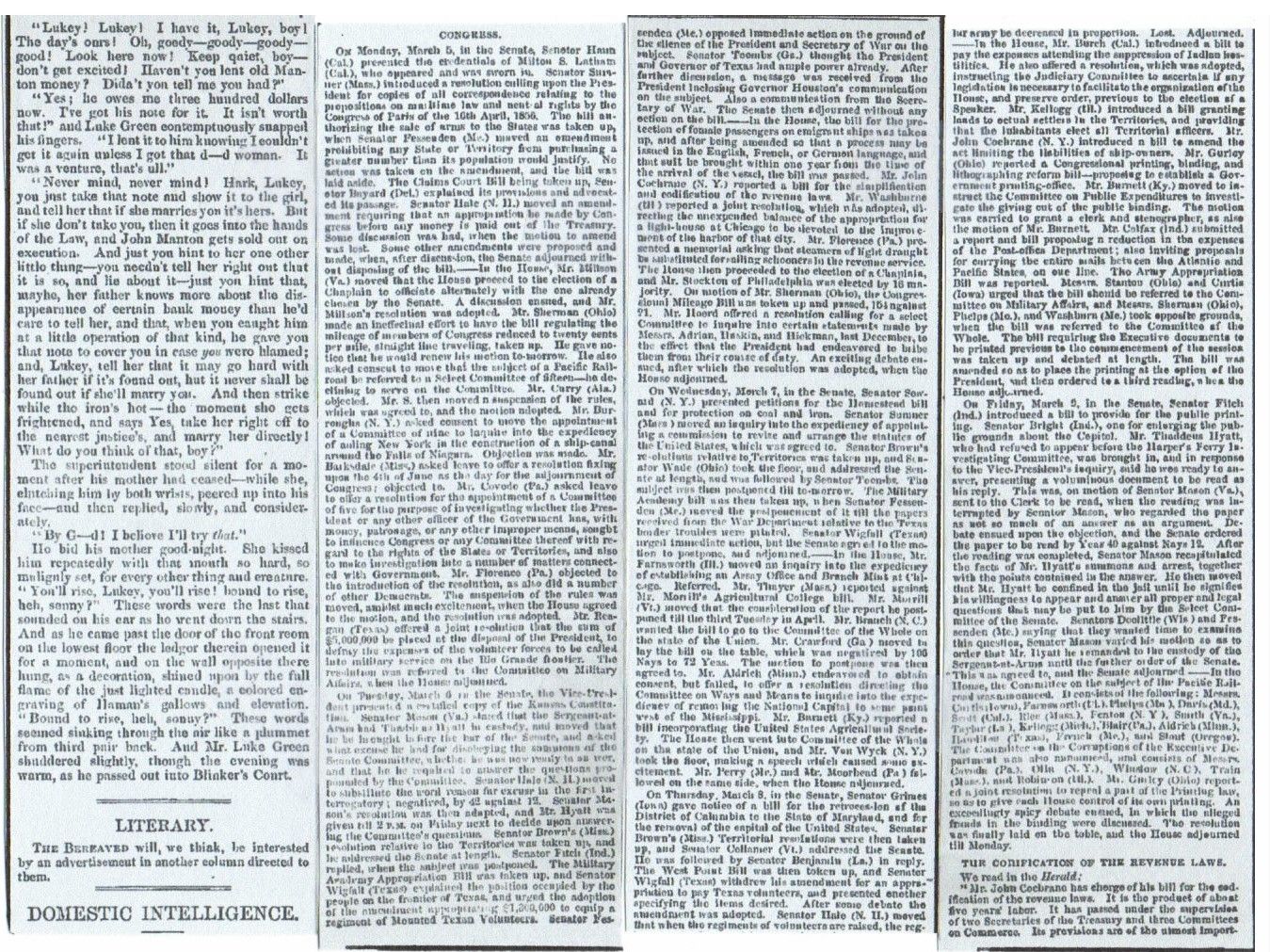


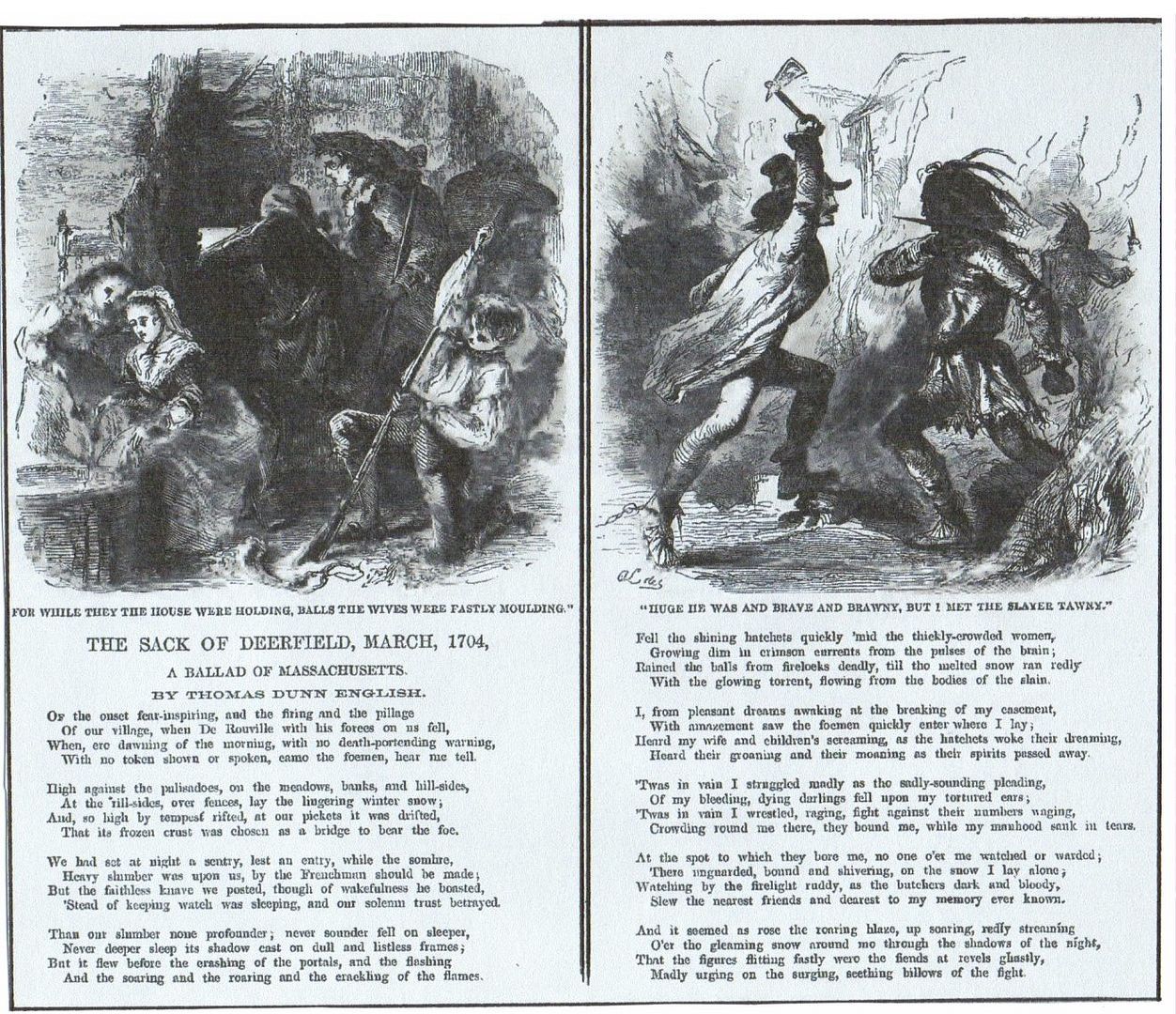









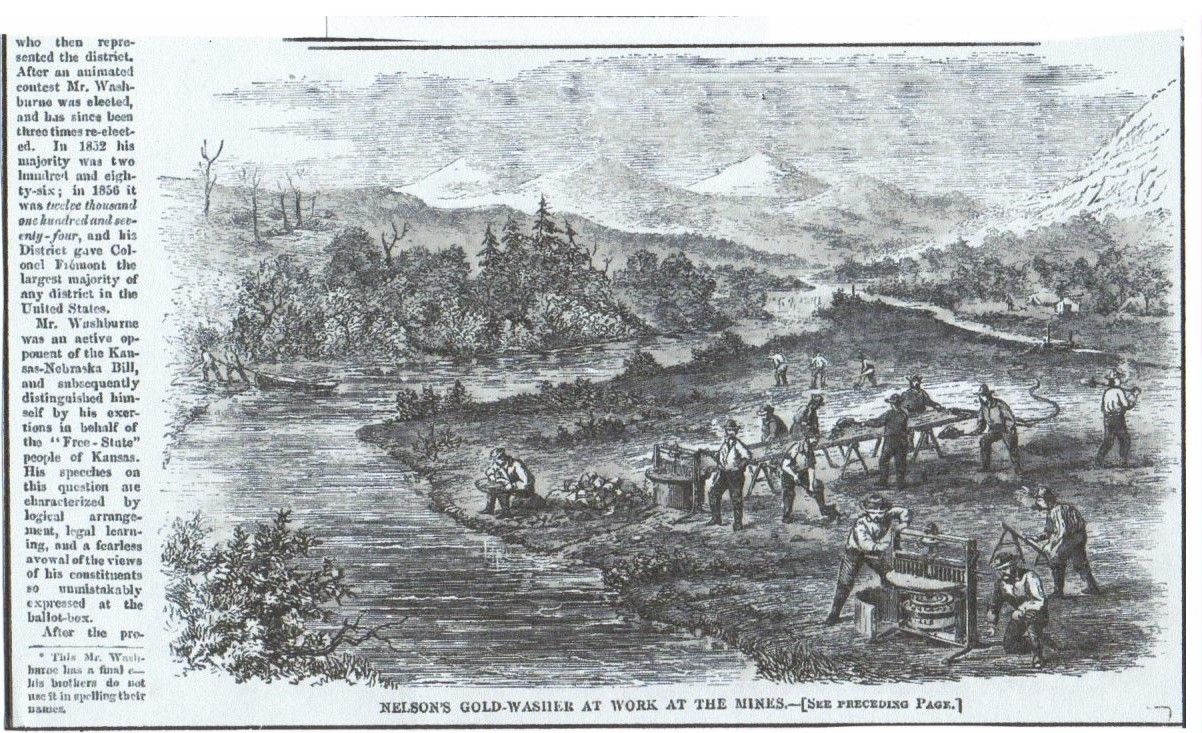
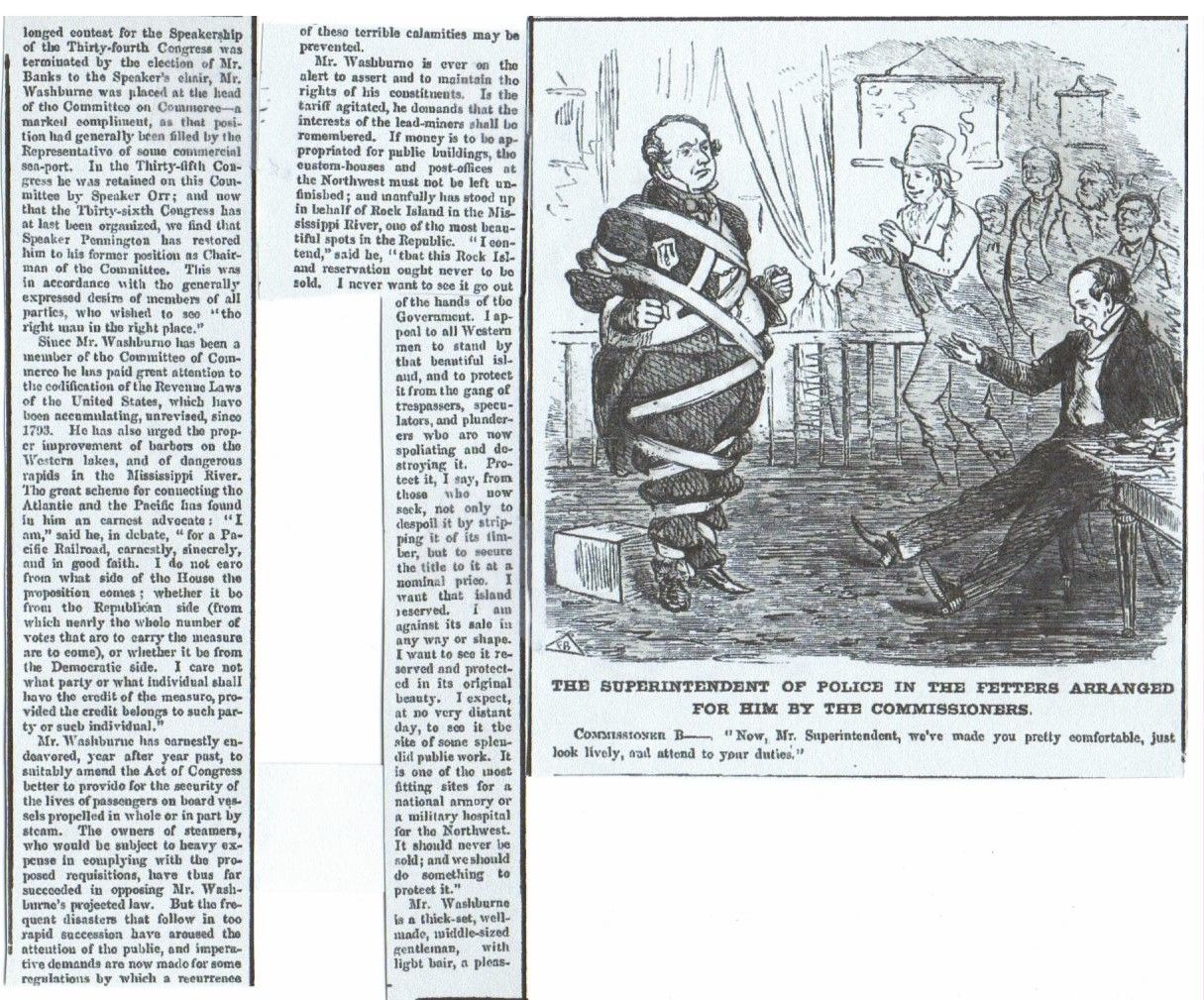


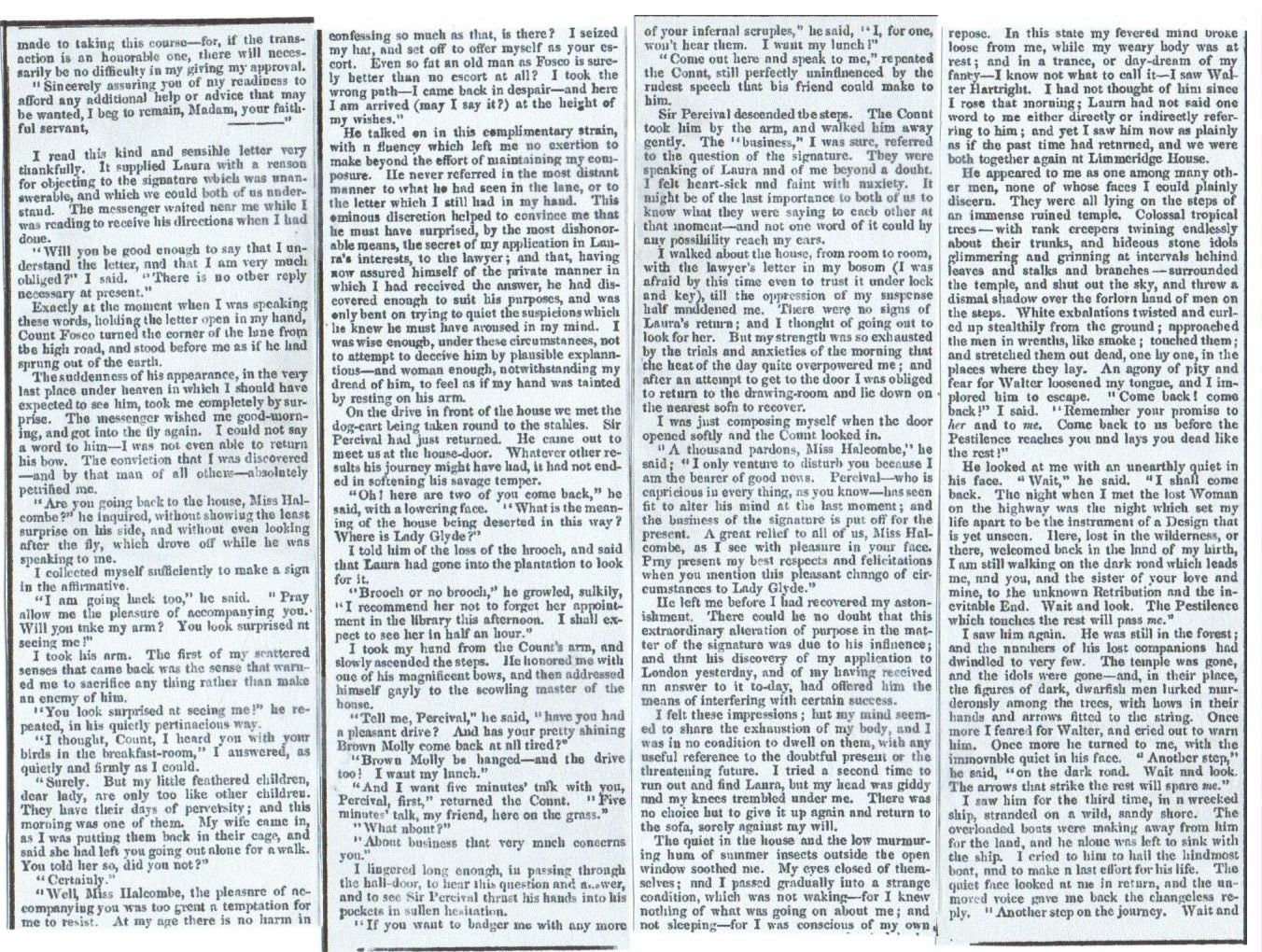
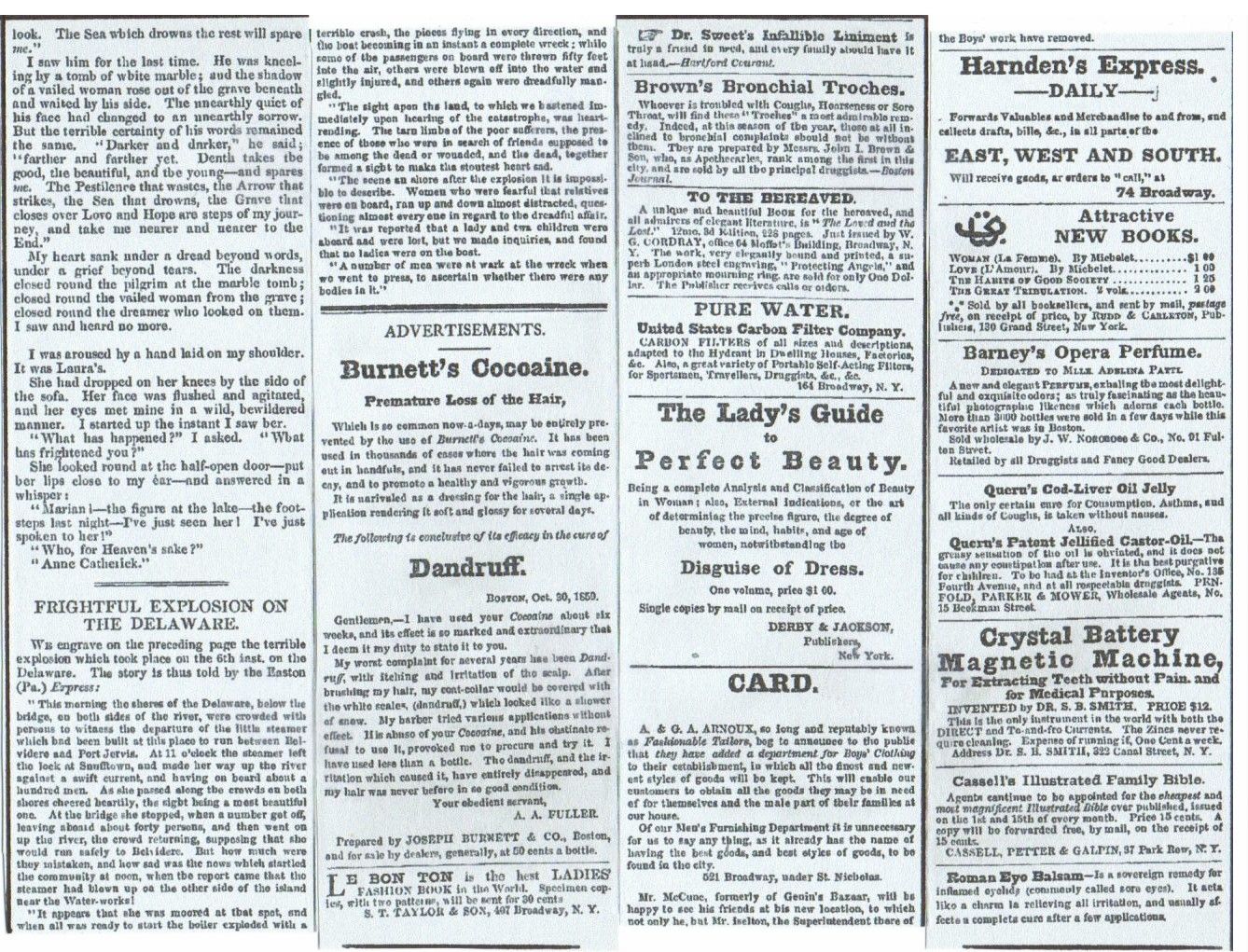
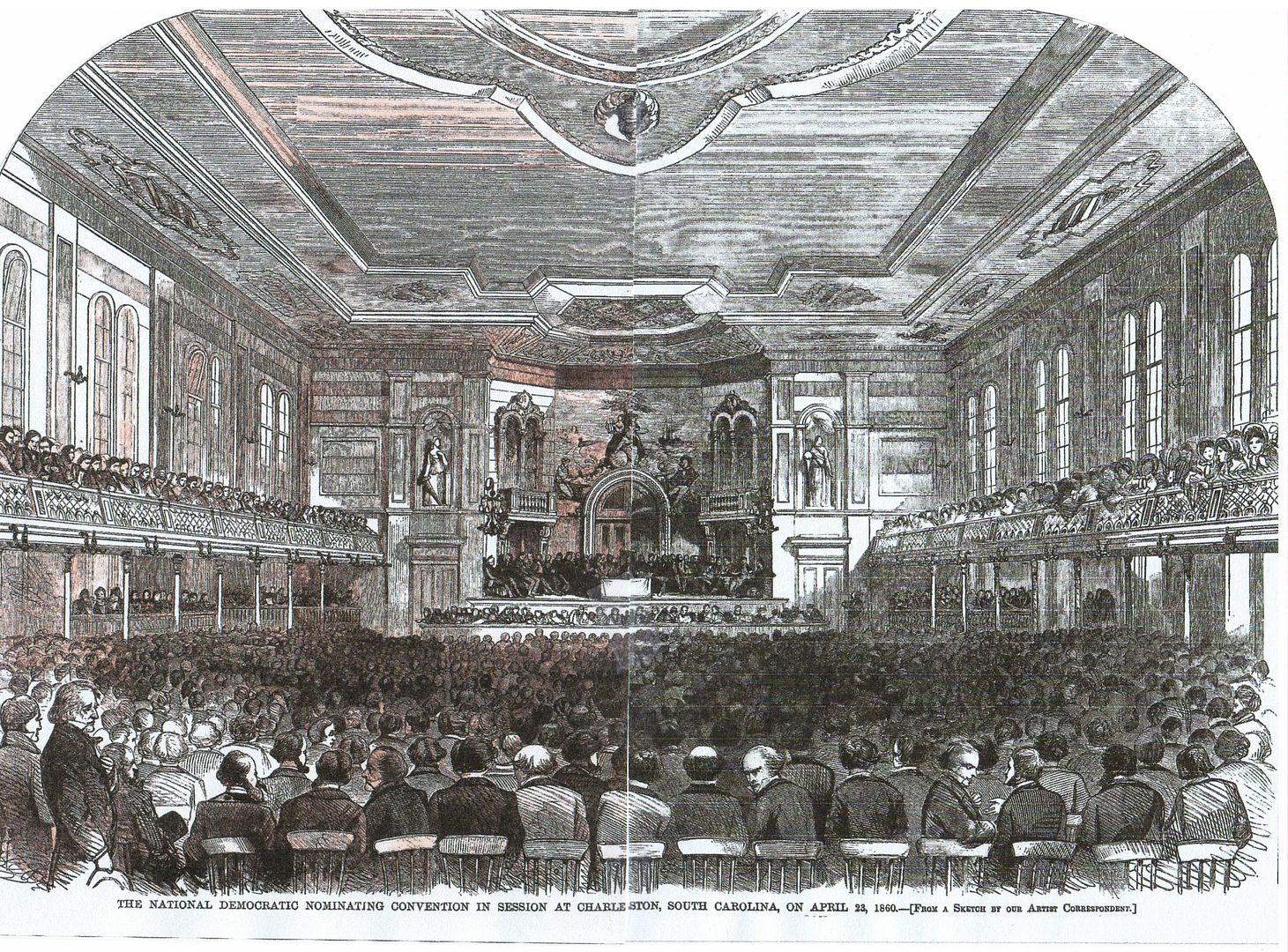
Free Republic University, Department of History presents U.S. History, 1855-1860: Seminar and Discussion Forum
Bleeding Kansas, Dred Scott, Lincoln-Douglas, Harper’s Ferry, the election of 1860, secession – all the events leading up to the Civil War, as seen through news reports of the time and later historical accounts
First session: November 21, 2015. Last date to add: Sometime in the future.
Reading: Self-assigned. Recommendations made and welcomed.
Posting history, in reverse order
To add this class to or drop it from your schedule notify Admissions and Records (Attn: Homer_J_Simpson) by reply or freepmail.

The Diary of George Templeton Strong, Edited by Allan Nevins and Milton Halsey Thomas
COLUMBUS, March 19, 1860.
MY DEAR FRIEND: Your letter came just as an imperious business necessity compelled me to go to Cincinnati. Returning, I found the announcement that it is determined to suspend the publication of the Era. The necessity of this step is greatly to be deplored. Surely a very little activity among our friends at Washington might have averted it. I fear the effect of it upon any attempt to obtain the surrender of the certificates in the Chicago Block Property. If I were only able I would myself take the responsiblity of carrying it on through the year; but I am literally exhausted by the expense of my residence here for the past four years, coupled with the great depreciation of property in the State.
I regret now that I did not recommend Mr. French to you. Although not the man to take the helm of the Era exactly, he is prompt, talented, and faithful, and might have organized a support which would have continued it. I believe I will write to him yet on the subject. Meantime please let me know what you are doing or propose to do, what propositions are made, if any, etc., etc.
As to the Chicago nomination, I possess my soul in patience. That I shall have some friends outside of Ohio who prefer me to all others, I know; that many more prefer me as a second choice is plain enough. What the result will be nobody can tell. If I were certain of the nomination I can hardly tell whether I should be more gratified by the confidence implied in it, or alarmed by the responsibilities and trials which it would impose. There seems to be at present a considerable set towards Seward. Should the nomination fall to him, I shall not at all repine. If the best interests of our cause and country will be best promoted by it, I shall not only not repine, but shall rejoice. Many, however, think he cannot be nominated; many, that if nominated he cannot be elected; many, that if elected, his administration will divide the Republicans, reorganize the Democracy, and insure its triumph. Situated as I am, I cannot enter into these speculations, but prefer to let opinions form themselves.
I wish I could come to Washington without seeming to seek votes. If I could, I would. There are some things of a business nature I want to do, and there are friends I want to see. But I suppose it will not do for me at present. I would rather never have a place than seem even to be importunate for it.
Give my best love to the children, and believe me,
S. P. CHASE.
SOURCE: James Shepherd Pike, First Blows of the Civil War: The Ten Years of Preliminary Conflict in the United States from 1850 to 1860, p. 502-3
March 19. George Wood died yesterday. A very great lawyer, with an intellect that worked slowly but most effectively, like a heavy siege gun. Any sharp-witted man could outmanoeuvre him at nisi prius, but with time for preparation and on a question of principle, he was irresistible.
The Diary of George Templeton Strong, Edited by Allan Nevins and Milton Halsey Thomas
I notice that "the... democracy" is not capitalized here, though it is elsewhere, while Democrat and Democratic are.
Would be curious to learn during what period of years "the Democracy" was used to mean the Democrat party.
Also curious to notice that Senator Davis himself is not called a fire-eater, only that he comes from the fire-eater section of the country.
So I wonder if they mean the same thing by "fire-eater" that we understand today?
Despite his role in the Confederacy Davis is not today considered a fire-eater because he did not lead the charge for secession.
On the Republican side the editorial lists six possible candidates, in order of their preference & likehood:
My understanding is that it was common in the 1840s and 1850s. People say it goes back to Andrew Jackson's era, or less often and more questionably to Thomas Jefferson's. I assume it wasn't used as much after the Civil War, but here is an 1868 Atlantic article that uses the phrase.
You can also check Google Ngrams. The phrase took off in the 1830s, fell sharply from a peak in 1857 to a trough in 1864, and then climbed up again in the 1870s and 1880s. At some point, "the Democracy" ceased to mean the Democratic Party, but I don't know when.
On Harper's first attempt after the RNC they caption their Matthew Brady-derived portrait as "Abram Lincoln." I'm pondering the biblical connotations.
Hmmmm… the Ngrams graph shows the term "the democracy" was used as much in 1800 as it is today, but does not tell us what it referred to then or now.
Wikipedia tells us "the democracy" referred to Jacksonian Democrats, but no details on when or why first used.
No other search I can think of produces more information.
Ah well...
That passes my understanding, but I do notice the military connotations.
1916 first tank invented at William Foster Co., in Lincoln, known as "Little Willie":
Today, Abrams tank showing off its... ah... big willie:

The 1912 platform refers to the party as "the Democracy" once, but that seems to be pretty much the end. There was plenty of talk of democracy in the Wilson years, but that is in other contexts, not as the name of a party. If that was the end it makes sense: voters in 1912 would still have had memories of the 1880s, 1870s and 1860s, when the term was more common. I suppose for young liberals in the Twenties the term would have sounded very old-fashioned - something they wanted to leave behind.
[March 22, 1860]
DEAR SIR:
Please accept my thanks for the check, which came to hand yesterday, and also for the Globe. I will try to have your Speech published in our Republican papers.
It is the only one that hit the mark. Hale hit Fessenden, but overshot the question; all the rest are Republican and Democratic talk. In the meantime public opinion is slowly taking the right direction, one of the Judges of the S. J. C. declaring openly that the Senate is wrong, and another that the court would like to hear an argument on it, especially before any decision has been had elsewhere. They will be sure to have the opportunity.
GEORGE L. STEARNS.
SOURCE: Preston Stearns, The Life and Public Services of George Luther Stearns, p. 215
March 22, 1861
In Boston I was much interested in looking over Leigh Hunt's library which J. T. Fields bought and had for sale. It carried one nearer to a past era in English literature than anything else could do, to see his name and notes, all written in ink, in a delicate Italian hand and very abundant.
SOURCE: Mary Potter Thacher Higginson, Editor, Letters and Journals of Thomas Wentworth Higginson, 1846-1906, p. 102

The Diary of George Templeton Strong, Edited by Allan Nevins and Milton Halsey Thomas
I just did a double take at that sentence that is unrelated to the rest of the entry. I checked Foreign News (p. 14 above) and saw an item for Mexico that includes this: "Carvajal is seeking American aid for Juarez."
Benito Juarez is President of Mexico, where a civil war is ongoing. I suppose George suspects President Buchanan is thinking of getting involved on the side of the Mexican government. That's not the civil war Mr. Strong should be concerned with.
Mr. Strong is intelligent, and has a good surface knowledge of foreign affairs, but it is not deep. He misses a lot of the local political culture, and makes assumptions from an American perspective, when commenting on foreign countries.
I may have asked this before, but is anybody else in these threads reading George Templeton Strong’s diary entries in George Plimpton’s voice?
Plimpton not only came from the same New York upper class as strong, he was also the direct descendant of several Civil War figures - Benjamin Butler, Adelbert Ames, and Oakes Ames. The two Ameses - one a general like Butler, the other a politician - were not related. I guess George's grandmother didn't want to have to change her monogram.
In the letter from George Stearns to Senator Sumner in the reply above Stearns is referring to his Senate testimony about the Harper’s Ferry affair. Senator Fessenden of Maine must have been on the committee.I found a record of the testimony on this site =>
http://www.wvculture.org/history/jbexhibit/stearnsmasontestimony.html
Disclaimer: Opinions posted on Free Republic are those of the individual posters and do not necessarily represent the opinion of Free Republic or its management. All materials posted herein are protected by copyright law and the exemption for fair use of copyrighted works.